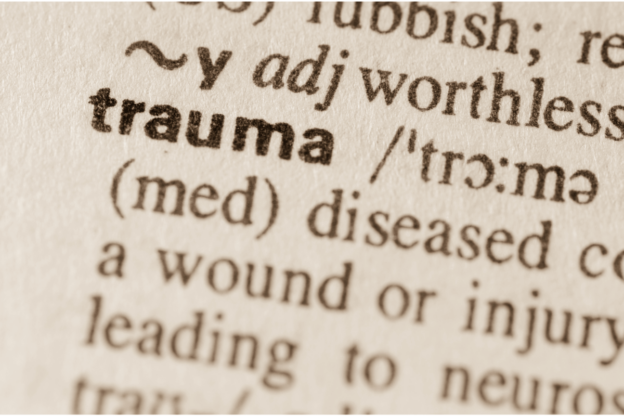If you’ve experienced trauma, you know it doesn’t just fade away with time. Trauma has a way of embedding itself in the body and mind, influencing how we react to life’s challenges and how we cope. When that coping involves substance use, it becomes a cycle that’s tough to break alone.That’s where our dual diagnosis treatment in Massachusetts comes in.
At Berkshire Mountain Health, we offer a unique approach to treating both addiction and underlying mental health conditions, helping clients address trauma at its roots.
Understanding Trauma and Its Connection to Addiction
Trauma impacts people in different ways. For some, it triggers anxiety, depression, or PTSD, while for others, it leads to difficulties with trust or intense emotional responses.
For many, substance use becomes a way to manage the pain or anxiety that trauma leaves behind. But this form of self-medicating doesn’t resolve the traumatic event—it often reinforces it.
Addiction and trauma are often linked in a complex relationship. Trauma disrupts the brain’s response to stress, creating a heightened state of alert or, in some cases, emotional numbness.
Substances like alcohol or drugs can provide temporary relief from these symptoms, but they quickly form a cycle of dependency. This dependency can evolve into a dual diagnosis, where a person faces both a substance use disorder and a mental illness, often rooted in unaddressed trauma.
The Role of Dual Diagnosis Treatment in Massachusetts
At Berkshire Mountain Recovery, we approach trauma and addiction treatment together at our dual diagnosis treatment in Massachusetts. This means treating both substance use and a mental health disorder simultaneously, as each condition influences the other. Our outpatient services, accessible for those in Massachusetts, focus on personalized plans that address each client’s unique needs.
Our dual diagnosis treatment in Massachusetts includes trauma-informed care, an approach that recognizes the impact of trauma on behavior and mental health. This approach means working with our clients in a way that acknowledges and respects their experiences.
Trauma-informed care is built around safety, trust, and empowerment, creating an environment where clients feel supported and understood. This foundation allows for more profound healing and a more effective path to recovery.
Key Therapies in Dual Diagnosis Treatment
Our treatment plans offer a range of therapies specifically designed to help clients process various types of trauma and manage addiction. Here’s how some of these therapies support recovery:
Cognitive Behavior Therapy (CBT)
CBT is an essential tool in our approach. By helping clients recognize and shift negative thought patterns, CBT works to reduce the emotional triggers that often lead to substance use.[1]
For those who’ve experienced trauma, CBT offers a structured way to break down and reframe harmful thoughts, replacing them with constructive strategies for managing stress.
Eye Movement Desensitization and Reprocessing (EMDR)
EMDR is particularly effective for trauma-related conditions. Through guided sessions, clients can process traumatic memories without reliving the emotional intensity.
EMDR’s goal is to make that traumatic experience less overwhelming, allowing clients to move past the associated memories. This is an evidence-based method that helps reduce the power trauma holds over the mind, allowing for progress in addiction recovery.
Dialectical Behavior Therapy (DBT)
DBT combines cognitive techniques with mindfulness practices, helping clients regulate emotions and reduce impulsive behaviors. Behavioral therapies are beneficial for clients who may have turned to substances to manage intense feelings.[2]
DBT offers tools for managing these emotions without relying on substances. The endgame of this approach sees patients enjoying a more balanced state of mind because, for many people suffering from a mental health disorder, there is a notable lack of balance in their lives. DBT aims to resolve this by giving the patient the clarity and direction they need to succeed.
Group Therapy During Dual Diagnosis Treatment in Massachusetts
In our outpatient program, group therapy provides a supportive environment for clients to connect with others who understand their experiences. It’s a safe space to share struggles and successes and learn from the insights of others on similar journeys. Group therapy helps reduce feelings of isolation and builds a network of support—a critical element for long-term recovery.
Relapse Prevention Planning During Dual Diagnosis Treatment in Massachusetts
Preventing relapse is a crucial part of recovery, especially for those dealing with childhood trauma and other types of trauma. Our mental health treatment team works with clients to identify potential triggers and develop a plan for handling them. This proactive approach equips clients with the tools they need to maintain their progress, even when facing daily challenges.
Why Trauma-Informed Care Matters
Trauma-informed care isn’t about diving into trauma without preparation. Instead, it’s about building a foundation of trust and understanding. This approach creates a safer environment for clients to process their experiences at their own pace without feeling overwhelmed.
For someone who’s used substances to cope with trauma, this supportive environment allows them to face their past in a healthier, more manageable way.
We understand that each person’s experience with trauma is unique, and our treatment approach reflects that. With trauma-informed care, our clients feel respected and understood, which makes a real difference in their engagement with treatment and their overall progress.
Tailoring Treatment to Fit Your Life
At Berkshire Mountain Recovery, we know recovery is most effective when it’s flexible and accessible. Our outpatient model allows clients to participate in treatment while still managing work, family, or personal obligations. This model helps bridge the gap between treatment and everyday life, making it easier for clients to apply what they learn in real-world situations.
We also recognize the importance of treating the whole person. Trauma and addiction affect every aspect of life—mental, physical, and emotional. Our treatment plans incorporate this understanding by focusing on overall well-being, not just symptom management. From counseling sessions to wellness practices, we aim to support clients on every level.
Moving Toward Lasting Recovery
Our dual diagnosis treatment center provides a path to more profound healing, one that acknowledges the scope of trauma and addiction. At Berkshire Mountain Recovery, our approach combines evidence-based therapies with compassionate care, creating an environment where clients can address their past, focus on the present, and plan for a healthier future.
If you or a loved one is ready to start the journey to treatment and recovery, we’re here to help. Berkshire Mountain Recovery is dedicated to providing trauma-informed, dual-diagnosis rehab in Greenwich that truly supports every step of the healing process. Contact us today to learn more about our outpatient treatment programs and take the next step toward recovery.
Sources:
[1] https://www.ncbi.nlm.nih.gov/books/NBK279297/
[2] https://pmc.ncbi.nlm.nih.gov/articles/PMC2963469/

Alexis earned both a B.S. in Psychology and a B.S. in Family and Child Sciences from Florida State University and an M.A. in Marriage and Family Therapy from the University of San Diego. She holds licenses in Marriage and Family Therapy in Florida, Connecticut, and Massachusetts and is also a member of the American Association for Marriage and Family Therapy (AAMFT).
Alexis works with families, couples, children, and groups and also has a sub-specialty in addiction and recovery. She utilizes an integrated, systemic approach to counseling; empowering people to define what is not working for them in their lives and to discover the possibilities for making life work. In doing this, clients are guided towards identifying their strengths, accessing their resources, tapping into their potential for success, and taking action toward achieving their desired goals.
Alexis also has extensive experience in the administration of behavioral health organizations. She has developed, built, and supervised several facilities encompassing all levels of care while leading them through state licensing and The Joint Commission accreditation process.



